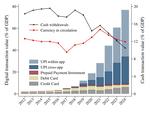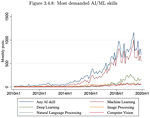Biography
I am an Economist in the Research Department at the International Monetary Fund. My research focuses on the relationships between technology, finance, trade and development.
Disclaimer: All views expressed on this site are my own and do not necessarily reflect the position of the IMF.
- Fast payment systems
- Crypto and CBDC
- Tokenization
DPhil in Economics, 2021
University of Oxford
MSc in Development Economics, 2017
University of Oxford
BA in Philosophy, Politics & Economics, 2015
University of Oxford
Working Papers
Publications
Policy Work
& Other Writing
Payment Frictions, Capital Flows, and Exchange Rates | SUERF Policy Briefs | November 2025
India’s Frictionless Payments | IMF Finance & Development | Fall 2025
Growing Retail Digital Payments: The Value of Interoperability | IMF Fintech Note | June 2025
Discussion of “New Technologies and Jobs in Europe” by Albanesi et al. | ASSA | January 2025
AI and Services-Led Growth | IMF Research Perspectives | May 2024
Macro-Financial Impacts of Foreign Digital Money | IMF Working Paper and Fintech Note | December 2023
Banks' Joint Exposure to Market and Run Risk | IMF Working Paper | September 2023
Malaysia 2023 Article IV Consultation | IMF | June 2023
Recovery Unabated Amid Uncertainty | IMF Regional Economic Outlook | May 2023
Geoeconomic Fragmentation and Asia | IMF Regional Economic Outlook | October 2022
Post-COVID Scarring in Asia | IMF Regional Economic Outlook | October 2022
Malaysia 2022 Article IV Consultation | IMF | April 2022
Crypto for Dummies | Brown Bag Lunch | December 2021
Strange New World: Globalization, AI and Development | Oxford Global Exchanges | August 2021
Rescue: From Global Crisis To A Better World | Ian Goldin | May 2021
Rethinking Global Resilience | IMF Finance & Development | Fall 2020
Fragility to Strength: Lessons in Building State Resilience from Around the World | Reform | October 2020
Creating Network Diagrams in Gephi | CSAE Coders' Corner | October 2020
Technology and the Future of Work | Center for International Cooperation | September 2020
The Just Transition in Energy | Center for International Cooperation | September 2020
Multilateralism and the Search for Collective Institutional Leadership and Governance | DOC Rhodes Forum | August 2020
Experience
Macro-Financial Division, Research Department
Regional Studies Division & Malaysia Team, Asia and Pacific Department
Courses taught:
- Undergraduate — Economics of Developing Countries
- MSc Economics for Development — International Trade
- DPhil Continuing Education — Econometrics
Contact
- acopestake@imf.org
- 1900 Pennsylvania Avenue NW, Washington, DC, 20431



